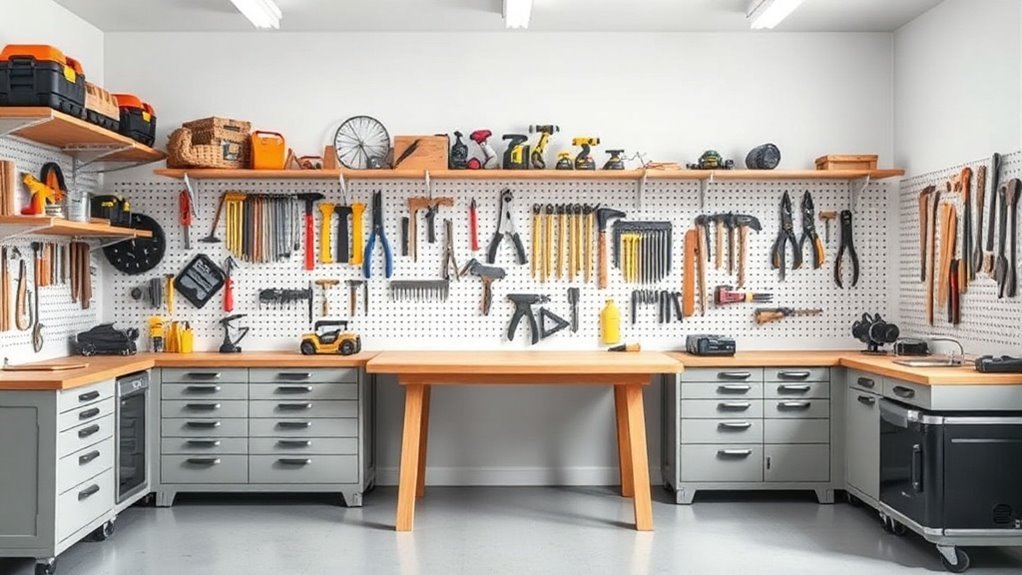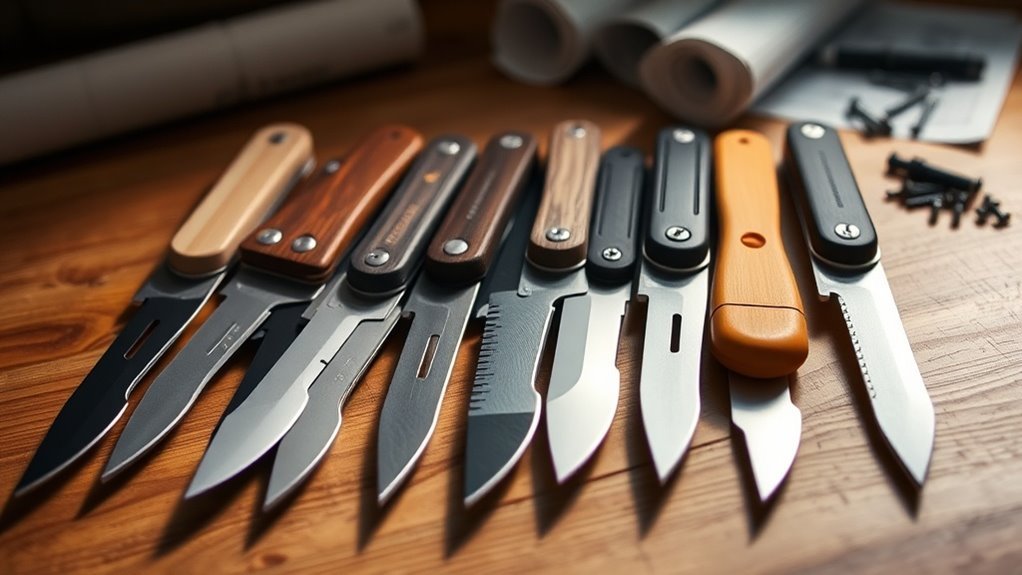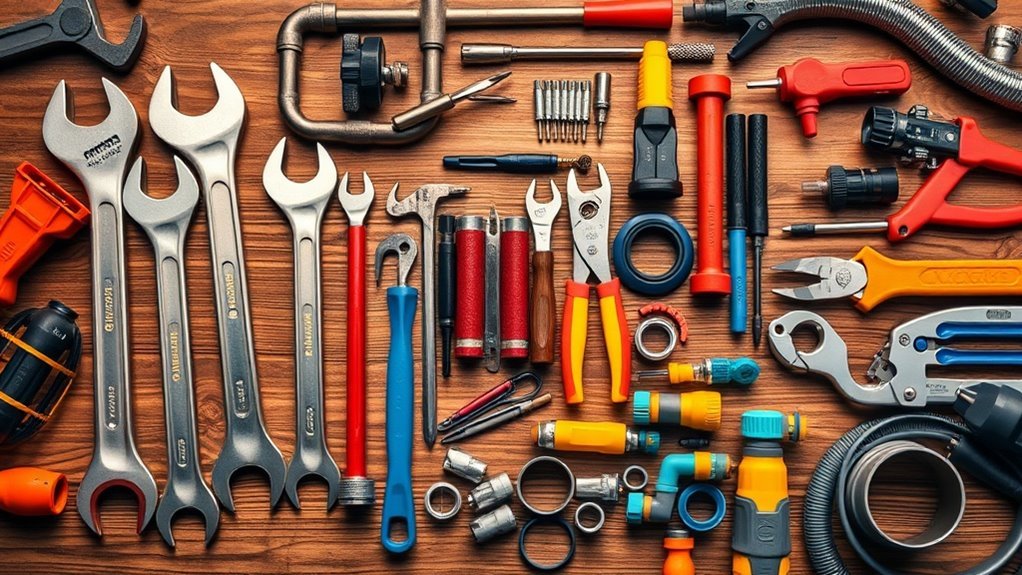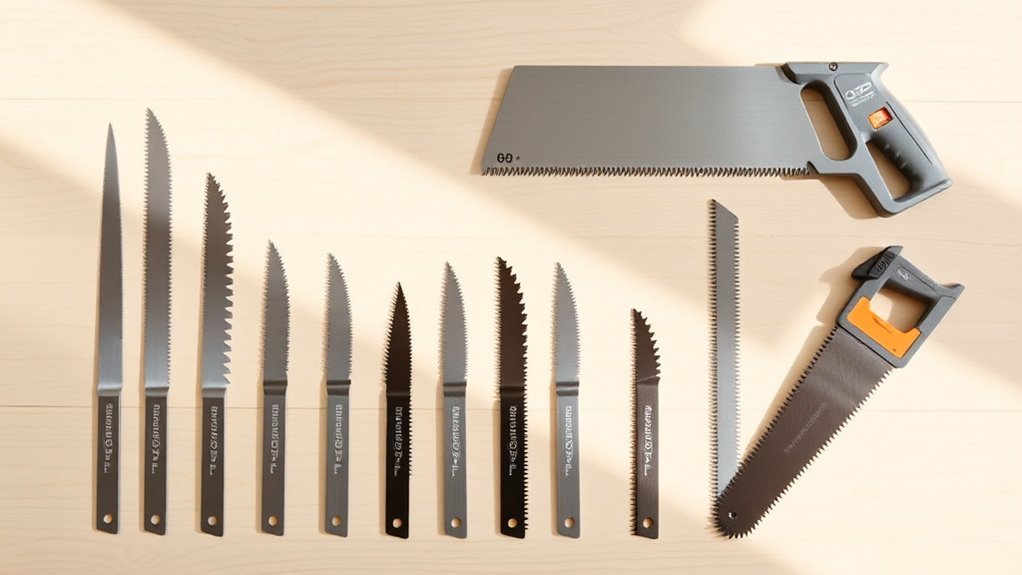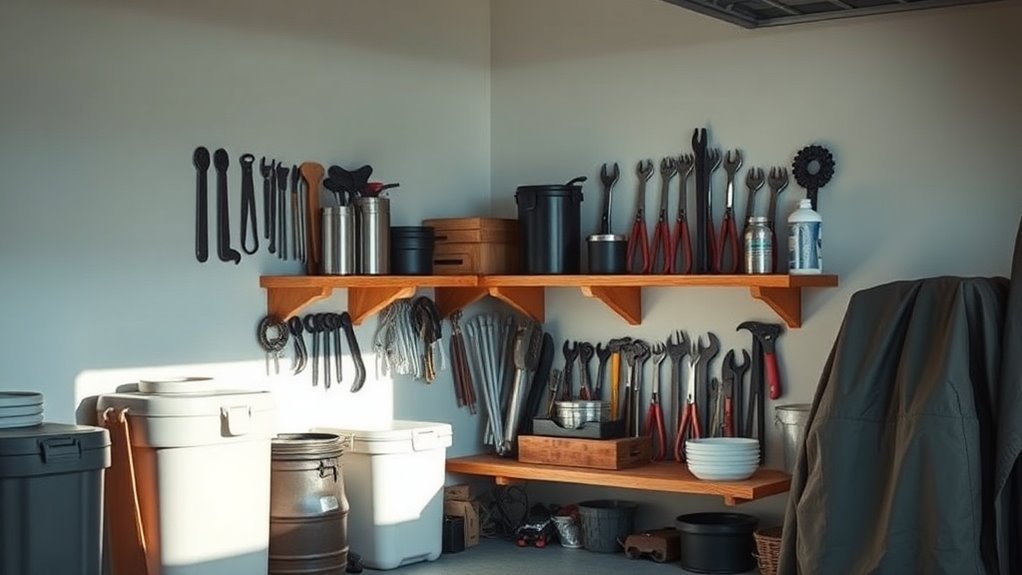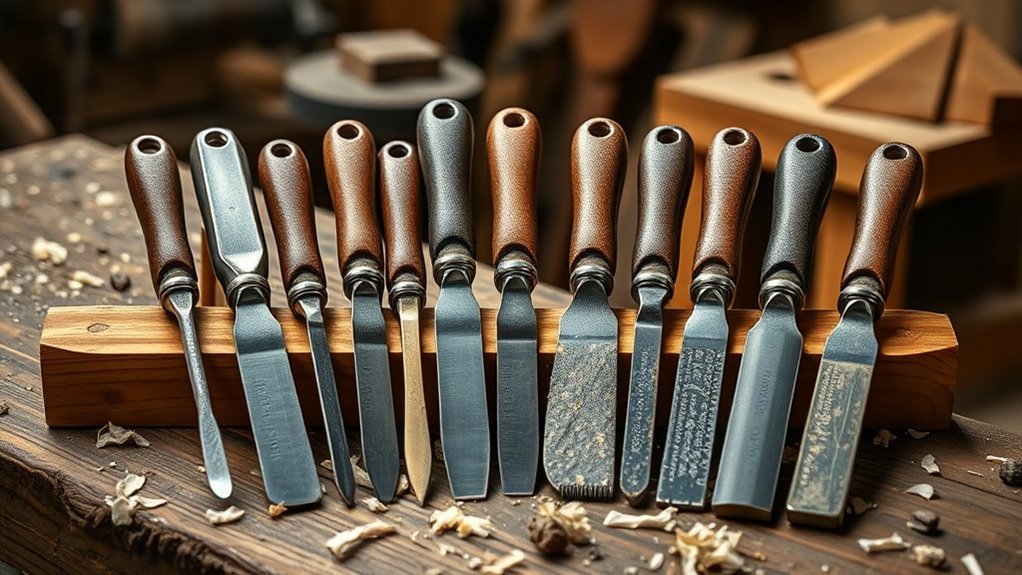Why Precision Tools Matter in Mechanical Work
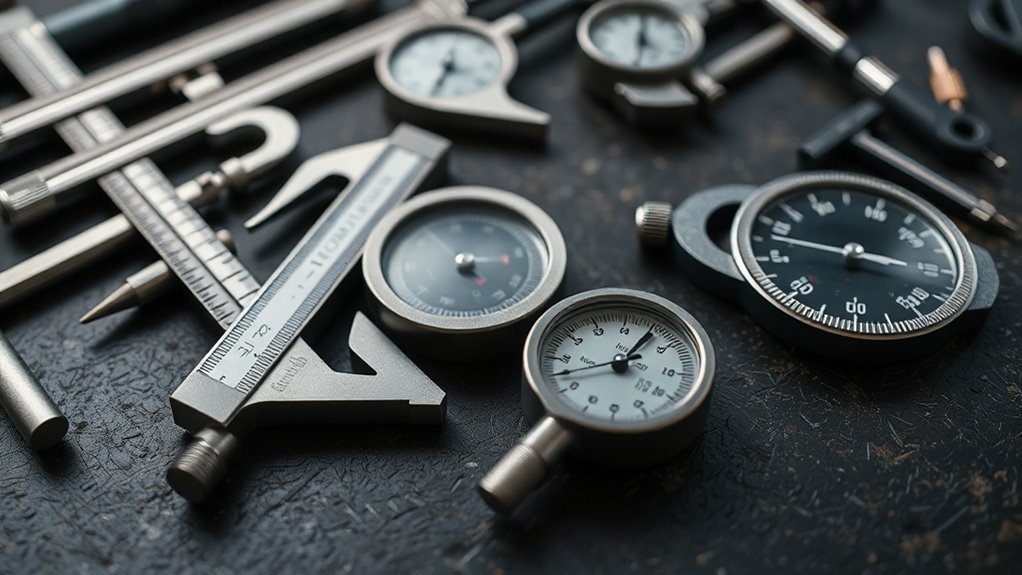
Precision tools matter in mechanical work because they guarantee accurate measurements, which are vital for achieving high-quality results. Even small deviations can lead to functional issues and wasted materials. Investing in quality tools not only enhances durability and user comfort but also boosts efficiency by reducing errors and enabling quick task completion. With better precision, you can save time and money in the long run. There’s much more to discover about how these tools can elevate your work.
Key Takeaways
- Precision tools ensure accurate measurements, reducing the risk of functional issues and failures in mechanical components.
- Investing in quality tools enhances productivity by minimizing errors and reducing material waste.
- Reliable precision instruments improve user ergonomics, allowing for more comfortable and efficient work.
- Consistent results from precision tools build a reputation for quality craftsmanship, leading to repeat business.
- Durable tools require less frequent replacement, resulting in long-term cost savings and improved project outcomes.
The Importance of Accuracy in Mechanical Work
Accuracy in mechanical work isn’t just important—it’s essential for achieving ideal results. When you’re crafting or assembling parts, even the smallest deviation can lead to functional issues or failures. Ensuring precise measurements and alignments enables you to create components that fit together flawlessly and operate as intended. It’s not just about getting by; you want your work to be reliable and efficient. Utilizing the right measuring tools can significantly enhance the quality of your mechanical projects.
Types of Precision Tools and Their Applications
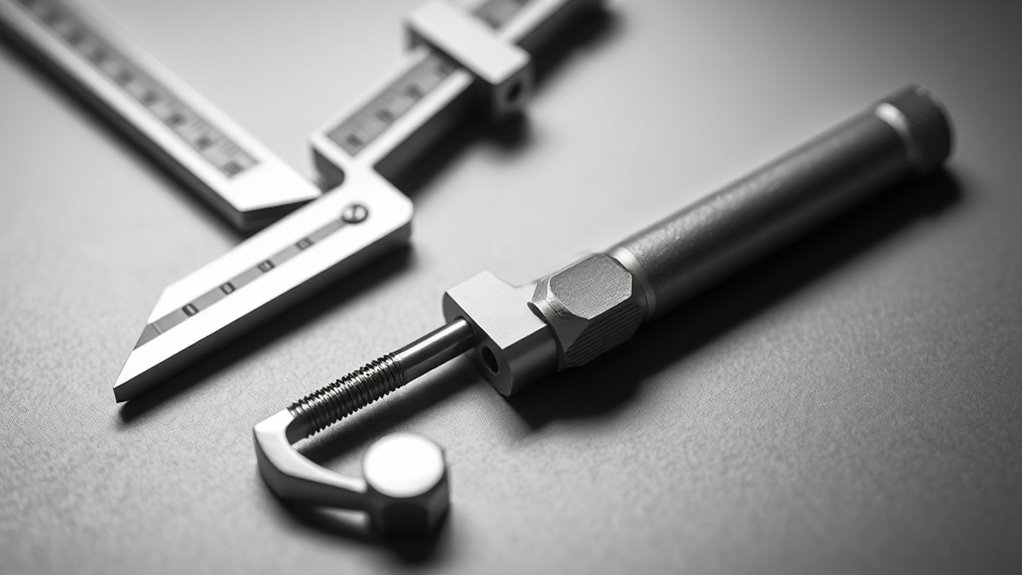
In the world of mechanical work, there are several types of precision tools that can elevate your craftsmanship. Calipers, such as digital and dial types, allow you to measure internal and external dimensions accurately.
Micrometers take it a step further, offering precision down to thousandths of an inch—perfect for fine-tuning components. A good combination square helps guarantee your angles are spot-on, while levels keep your work horizontally and vertically aligned.
For measuring angles, protractors are invaluable. Surface plates provide a flat reference for machining and layout work, making sure that everything stays true. Precise measurements in mechanical work not only enhance quality but also reduce waste and save time, aligning with the best practices in DIY projects.
Each tool has its specific application, and knowing when and how to use them can dramatically improve your efficiency and accuracy in any project.
Benefits of Investing in Quality Precision Tools
When you choose to invest in quality precision tools, you’ll notice an immediate improvement in your work. These tools provide greater accuracy, ensuring your measurements and cuts are spot on, which minimizes mistakes and material waste.
Investing in quality precision tools significantly enhances your accuracy, reducing mistakes and material waste in your projects.
You’ll also experience enhanced durability; quality tools withstand the rigors of daily use, giving you reliable performance over time. Additionally, they often come with better user ergonomics, reducing fatigue during long projects.
This means you can focus on precision without the distraction of discomfort or faulty equipment. Ultimately, investing in superior tools fosters a higher standard of craftsmanship, enabling you to deliver better results and boost your professional reputation. The ongoing evolution of tool design ensures that you have access to the latest advancements in technology and materials.
Quality tools are an investment in your skillset and overall efficiency.
How Precision Tools Enhance Efficiency and Productivity
Precision tools greatly enhance your efficiency and productivity, enabling you to complete projects faster and with less effort. When you utilize these tools, you minimize the risk of errors that can derail progress. Tasks that used to require multiple adjustments become straightforward and streamlined. This leads to fewer interruptions, allowing you to focus on more complex aspects of your work. Additionally, just as multimeters measure voltage and ensure accurate readings in electrical work, precision tools provide reliable measurements for various mechanical tasks.
Here’s a quick overview of how precision tools benefit you:
| Benefit | Description |
|---|---|
| Time Savings | Complete tasks quicker with fewer adjustments. |
| Reduced Errors | Higher accuracy minimizes costly mistakes. |
| Consistency | Repeatable results guarantee reliability. |
| Less Waste | Precision reduces material losses. |
| Enhanced Creativity | Spend more time innovating rather than fixing. |
Long-Term Cost Savings With Precision Instruments
As you invest in precision instruments, you’ll quickly discover that their benefits extend beyond immediate gains; they can lead to significant long-term cost savings.
High-quality tools reduce the risk of errors, which means fewer costly reworks and returns. By enhancing accuracy, they guarantee that you produce superior products that meet client expectations, boosting your reputation and repeat business.
High-quality tools minimize errors, ensuring superior products that enhance your reputation and drive repeat business.
In addition, durable precision instruments typically require less frequent replacement, cutting down on overall tool expenditures. You’ll also achieve greater efficiency, allowing you to complete projects faster and take on more work. Moreover, using the right measuring tools ensures that you avoid common pitfalls that can arise from improper measurements.
In the end, the initial investment in precision tools pays off, improving your bottom line and helping you maintain a competitive edge in the mechanical field.
Questions
How Do I Maintain My Precision Tools Effectively?
To maintain your precision tools effectively, keep ’em clean, store ’em in a dry place, regularly check for wear, calibrate as needed, and avoid dropping or exposing ’em to extreme temperatures. Regular maintenance guarantees durability.
Are There Specific Brands Known for High-Quality Precision Tools?
Brands like Mitutoyo, Starrett, and Fowler are renowned for their high-quality precision tools. They’ve perfected craftsmanship akin to how Da Vinci approached art, ensuring you’ve got reliability and accuracy in your hands.
What Materials Are Best for Making Precision Tools?
The best materials for making precision tools include high-speed steel, tungsten carbide, and hardened steel. These materials offer durability, resistance to wear, and the ability to maintain sharp edges, ensuring accurate performance in your projects.
Can I Use Precision Tools for Non-Mechanical Tasks?
Yes, you can use precision tools for non-mechanical tasks. They offer accuracy and fine detail in crafts, jewelry making, and other projects. Just be mindful of their specific requirements to guarantee the best results.
How Do I Know When to Replace My Precision Tools?
You’ll know it’s time to replace your precision tools when they’ve become worn, show signs of rust, or lack accuracy. Regularly inspect for damages and inconsistencies; don’t hesitate to upgrade for better performance and results.
Conclusion
In the world of mechanical work, precision tools are the compass guiding you through the intricate landscape of craftsmanship. Just as a ship relies on its compass for direction, you depend on these tools to guarantee accuracy and efficiency in every project. By investing in quality instruments, you’re not just enhancing your work—you’re charting a course toward long-term savings and success. So, embrace the power of precision, and let it steer your craftsmanship to new heights.

